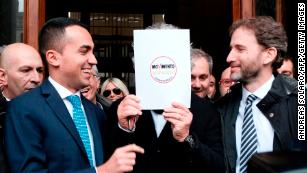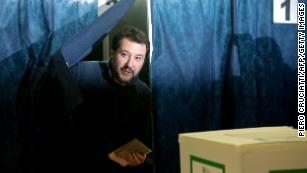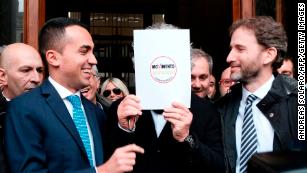Italian President to appoint non-political prime minister
Italy's President said Sunday he will appoint a technocratic, or non-political, prime minster after the designated choice declined to form a government.
President Sergio Mattarella and the prime minister-designate, Giuseppe Conte, met to discuss the forming of a government.
Conte, a law professor and political novice, was tapped by the country's populist parties last week to become prime minister and lead a new coalition government.
But Mattarella told reporters after their meeting Sunday that he objected to Conte's choice for the Economic Ministry.
He said Conte's candidate, Paolo Savona, was unacceptable because the appointment would alarm investors and have dangerous consequences for Italy's outstanding government debt.
Italy's next government is Europe's next crisis
Mattarella has not said who he'll name technocratic prime minister. He plans to meet Monday with Carlo Cottarelli, former director of fiscal affairs at the International Monetary Fund.
Mattarella said the country is heading for new elections.
"Nobody can say that I have put obstacles to the so-called government of the change," he said, but, "I need to take care of the savings of the Italian people."
Novice Conte emerged last week
Conte emerged as the frontrunner last Monday as Five Star leader Luigi Di Maio and Matteo Salvini, the League leader, met separately with Mattarella at Quirinal Palace.
Negotiations had been underway since the country went to the polls in March. The anti-establishment Five Star Movement (M5S) won the most votes, followed by the right-wing North League.
Di Maio and Salvini, the 45-year-old head of the League, had been locked in coalition talks after alliances with mainstream parties did not materialize.
The maverick populists striking fear into Italy's mainstream parties
Populists have ditched some of their most incendiary campaign vows, such as calling for a referendum on whether Italy should abandon the euro or leave the European Union.
Now, they are promising a spending and tax-cutting binge that has rattled investors and could contain the seeds of a new European crisis.
A populist government in Rome could make it more difficult for European Union leaders such as French President Emmanuel Macron and German Chancellor Angela Merkel to push further EU political and economic integration.
News Courtesy: www.cnn.com













